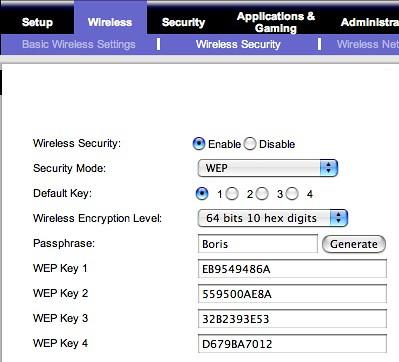In the world of online security, there is a phrase that holds the key to unlocking a treasure trove of personal information: the passphrase. A passphrase is not just a password, but a unique combination of words, characters, and symbols that grants access to our most sensitive accounts and data. In this article, we will delve into the nuances of passphrases, explore different examples and types, and discuss the best practices for creating and safeguarding these digital gatekeepers. So join us on a journey through the realm of online security as we unlock the secrets of the passphrase.
– Understanding the Concept of Passphrases: A Comprehensive Guide
What Is a Passphrase?
When it comes to online security, passphrases are becoming increasingly popular as a secure way to protect sensitive information. Unlike traditional passwords, which are typically a combination of letters, numbers, and symbols, passphrases consist of a longer string of words that are easier to remember but harder to crack. This makes them a great option for those looking to enhance their digital security.
Examples of Passphrases
Creating a strong passphrase is essential for safeguarding your online accounts and personal information. Here are a few examples of well-crafted passphrases that follow best practices for security:
- “SunshinePineappleMuffinDance!”
- “PurpleElephantRainbowDreams123”
- “OceanBreezeMountainTop$”
Types of Passphrases
There are different types of passphrases that you can use based on your security needs. Some common types include:
- Random Passphrases: Generated by a password manager to ensure maximum randomness.
- Diceware Passphrases: Created by rolling dice to select words from a list.
- Personalized Passphrases: Combining meaningful words or phrases that are easy for you to remember but difficult for others to guess.
– Examining Different Types of Passphrases and their Effectiveness
When it comes to online security, passphrases are a crucial aspect of keeping your accounts safe from hackers. A passphrase is a sequence of words or other text used to control access to a computer system, program, or data. Unlike traditional passwords, passphrases are typically longer and more complex, making them harder for hackers to crack.
There are several different types of passphrases that you can use to secure your accounts, each with its own level of effectiveness. Some examples of common passphrases include:
- Sentence-based passphrases: These are passphrases that consist of a full sentence or phrase, such as “Ilovetravelingtothecoast.”
- Random word passphrases: These passphrases are made up of a random sequence of words, like “butterflyninjabluetoothcoffee.”
- Acronym passphrases: These passphrases are created by taking the first letter of each word from a sentence or phrase, such as “SbNcB2022!” for “Summer beach vacation 2022!”
When choosing a passphrase, it’s important to consider the level of security you need for the account or system you are protecting. Longer passphrases with a mix of uppercase and lowercase letters, numbers, and special characters are generally more secure than short, simple passphrases. It’s also a good idea to use a unique passphrase for each account to further enhance security.
– Best Practices for Creating Strong and Secure Passphrases
Passphrases are a longer and more secure alternative to traditional passwords. They are typically made up of multiple words or a string of random characters, making them harder for hackers to guess. When creating a passphrase, it is important to follow best practices to ensure it is both strong and secure.
One way to create a strong passphrase is to use a combination of uppercase and lowercase letters, numbers, and special characters. For example, “Br@d$hoPp1ng!2!2” is a strong passphrase that includes a mix of characters. Another best practice is to avoid using easily guessable information such as birthdays, names, or common phrases. Instead, opt for a random combination of words that are memorable to you but difficult for others to guess.
It is also recommended to use different passphrases for each online account to prevent hackers from gaining access to multiple accounts if one passphrase is compromised. Consider using a password manager to securely store and manage all your passphrases. By following these best practices, you can create strong and secure passphrases to protect your sensitive information online.
– Real-Life Examples of Passphrases to Inspire Safe Online Practices
In today’s digital age, creating strong and unique passphrases is crucial to protecting your online accounts from cyber threats. A passphrase is a sequence of words or other text used to control access to a computer system, program, or data. Unlike passwords, passphrases are longer and typically more secure.
When creating a passphrase, it’s important to use a combination of uppercase and lowercase letters, numbers, and special characters to increase complexity. For example, instead of using a simple password like “123456,” consider using a passphrase like “PineappleSunset789!.” This passphrase is much harder for hackers to crack due to its length and variety of characters.
To inspire safe online practices, here are some real-life examples of strong passphrases that you can use as a template for creating your own:
- BeachSunrise2022!
- MountainHike$ummer23
- CoffeeLover#2023
Remember, the key to strong passphrases is to make them unique for each online account and to never share them with anyone. By following best practices for creating passphrases, you can better protect your sensitive information and maintain a secure online presence.
The Way Forward
In conclusion, understanding the importance of a strong passphrase is crucial in today’s digital age. By incorporating unique combinations of words, numbers, and symbols, you can enhance the security of your accounts and protect your personal information from potential threats. Remember, a passphrase is your key to unlocking a safer online experience. Stay vigilant, stay secure, and keep your passphrases strong. Thank you for reading!
